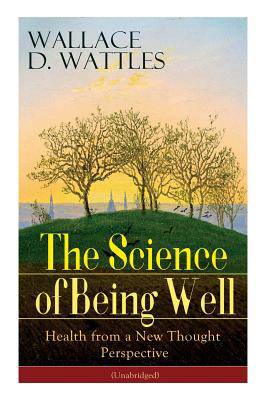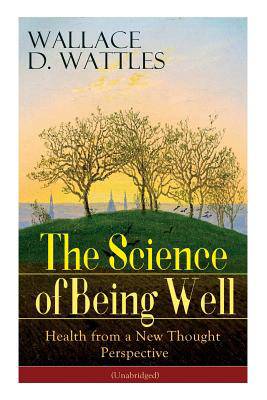
- Retrait gratuit dans votre magasin Club
- 7.000.000 titres dans notre catalogue
- Payer en toute sécurité
- Toujours un magasin près de chez vous
- Retrait gratuit dans votre magasin Club
- 7.000.0000 titres dans notre catalogue
- Payer en toute sécurité
- Toujours un magasin près de chez vous
The Science of Being Well: Health from a New Thought Perspective (Unabridged)
Health from a New Thought Perspective (Unabridged)
Wallace D Wattles
Livre broché | Anglais
11,95 €
+ 23 points
Format
Description
In 'The Science of Being Well: Health from a New Thought Perspective, ' Wallace D. Wattles presents a transformative exploration of health that intertwines metaphysical principles with practical guidance. Written in the early 20th century, Wattles positions well-being as a science, emphasizing that mental and spiritual states directly influence physical health. The text's literary style is characterized by its clear, didactic prose, and it reflects the optimistic ideals of the New Thought movement, which advocated for the power of the mind in shaping one's reality. This integrative approach invites readers to consider health not merely as a biological condition but as a holistic state encompassing body, mind, and spirit, setting the stage for the modern discourse on wellness and self-improvement. Wallace D. Wattles was a pivotal figure in the New Thought movement, influenced by various philosophical traditions, including Transcendentalism and the works of earlier thinkers such as Ralph Waldo Emerson. His own challenges with health and financial instability drove his quest for a deeper understanding of well-being and prosperity. Wattles' prior work, particularly 'The Science of Getting Rich, ' laid the groundwork for his exploration of physical health, as he sought to empower individuals to attain wellness through mental discipline and alignment with universal laws. This book is recommended for anyone eager to unlock the profound connection between mind and body. Wattles' insights offer not only practical strategies for enhancing health but also a philosophical framework that can lead to lasting change. Whether you are a seeker of knowledge, a practitioner in holistic therapies, or someone on a personal wellness journey, 'The Science of Being Well' provides a compelling and insightful perspective that has the power to inspire and transform.
Spécifications
Parties prenantes
- Auteur(s) :
- Editeur:
Contenu
- Nombre de pages :
- 48
- Langue:
- Anglais
Caractéristiques
- EAN:
- 9788027331307
- Date de parution :
- 15-04-19
- Format:
- Livre broché
- Format numérique:
- Trade paperback (VS)
- Dimensions :
- 152 mm x 229 mm
- Poids :
- 81 g

Les avis
Nous publions uniquement les avis qui respectent les conditions requises. Consultez nos conditions pour les avis.






